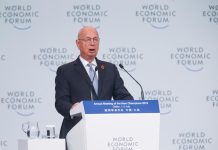
Large swaths of China are scrambling to restrict electricity use this winter, as the country’s rapid economic recovery from the coronavirus pandemic and unexpectedly frigid temperatures have sent demand for power surging.
Officials in at least three provinces — where a total of more than 150 million people live — have issued orders limiting energy use, warning of potential coal shortages.
In the city of Yiwu in eastern China, the authorities turned off streetlights for several days and ordered factories to open only part-time.
In coastal Wenzhou, the government ordered some companies not to heat their offices unless temperatures are close to freezing.
In southern Hunan Province, workers have reported climbing dozens of flights of stairs after elevators were shut down.
Residents anxious and confused
Demand for coal is so high in the mining hub of Henan Province that buyers have been lining up in trucks at the gates of coal mines, jostling for access.
Many residents have responded to the restrictions with anxiety and confusion, worrying about being left in the cold or suffering hits to their businesses.
Chinese officials have sought to remind citizens of the country’s ambitious environmental goals while reassuring them that there is plenty of energy to keep people warm and the economy humming.
“In general, please believe that our ability to ensure stable energy supply is not a problem,” Zhao Chenxin, secretary general of the National Development and Reform Commission, which steers energy policy, said on Monday.
But the drastic measures point to potential longer-term problems in China’s energy universe, as leaders juggle competing priorities.
China depends on imported coal
Coastal areas of China depend on imported coal, including from Australia. But relations between the two countries have gone into free-fall this year, as Australia has, among other things, demanded an investigation into the origins of the coronavirus, which first emerged in China. China in turn has banned imports of Australian coal — leaving huge ships stranded at sea.
Chinese officials have denied that the ban on Australian coal is responsible for the current squeeze on energy, noting that in 2018 less than 8 percent of China’s coal consumption involved imported coal; much of Australia’s coal is also used for steel and other metals, not power. But the government has also acknowledged, with rare bluntness, the scale of the problem.
“At the moment, some provinces temporarily do not have enough electricity. This is an objective fact,” said the entity that oversees state-owned companies.
Energy shortage and restrictions since beginning of Dec. 2020
The reports of shortages and restrictions began emerging earlier this month. On Dec. 4, officials in Hunan announced that monthly electricity demand had seen double-digit growth from the previous year and would soon exceed the grid’s capacity. The shortage would last into the spring, they added.
In response, the authorities ordered residents to begin rationing energy. Every day between 10:30 a.m. and noon, and 4:30 p.m. and 8:30 p.m., lighting on most building facades and billboards are to be shut down. Office buildings will not have power during weekends. Residents were also told not to use electric stoves or ovens.
Hunan, where 67 million people live, has been unusually cold, with temperatures last week slipping below freezing.
In Jiangxi Province, in the south, officials have also set out peak hours in which energy use will be limited. In Wenzhou, a city in Zhejiang Province, officials said that companies would not be allowed to turn on heating until temperatures fell below 3°C (37.4°F), and would not be allowed to set the temperature higher than 60 degrees.
A county near Wenzhou said that the cafeterias of government agencies, businesses and financial institutions should not turn their heating on, even during mealtimes. Elevators should operate only for the fourth floor and above, until the end of the year.
The whole city was dark
The restrictions have drawn the ire of many local residents. In Yiwu, home to the world’s largest wholesale market, the government turned off streetlights for several days, until residents complained about safety issues.
“The whole city was dark, and you couldn’t see anything,” said Zhang Shaobo, a store owner in Yiwu. “Driving home from work a few days ago, I saw several car accidents. All you can do is drive more slowly.”
Elevators and billboards in the city’s malls remain turned off. Some manufacturers have also been ordered to take two or three days off for every day they work — much to the annoyance of workers who have just started to see their livelihoods return after the economy ground to a halt during the epidemic.
What’s behind the increase in energy consumption in China?
The resurgence of manufacturing may be one reason for the new restrictions. China reported a record trade surplus of $75 billion in November, fueled by a 21 percent surge in exports compared with the same period last year. Exports to the United States alone jumped 46 percent.
That spurt of demand, while bolstering Yiwu’s economy, may also have put the city over its energy targets. That could have prompted officials to make sudden cuts in order to comply with environmental goals.
Surging coal prices
The authorities on Monday emphasized regional differences in the energy restrictions, noting that while Hunan and Jiangxi faced real shortfalls in power supply, Zhejiang’s limits were voluntary.
When a spate of blackouts blanketed Guangzhou, one of China’s biggest cities, on Monday morning, officials quickly labeled the cause an equipment failure, unrelated to the issues elsewhere. Officials said there was no nationwide power problem.
Still, officials have tried to counter surging domestic coal prices by easing import controls on coal from countries other than Australia.
Spot prices for the kind of high-heat-content coal formerly supplied by Australia to China, including freight charges, have soared to about $80 per metric ton, from around $46 per ton four weeks ago, according to S&P Global Platts, a commodities data service.
Meanwhile, for those affected by the suddenly mandated blackouts, you have no choice: “They don’t discuss this policy with you. They just notify you. If you don’t comply, they’ll cut off your electricity.”
This is pure insanity! And again, the people of China suffer energy rationing while facing unprecedented cold temperatures. More politics news on NYT, Strange Sounds and Steve Quayle.












https://www.naturalnews.com/2020-12-30-full-list-of-traitor-media-outlets-sponsored-trips-communist-china.html
American journalism is a kung pao lawn sausage.
Russians found a woolly rhino in Siberia. That should be interesting. Radio says, “organs were still intact.”
At some point soon, the CCP will use the withering morale of Chinese citizens to gaslight them into supporting an invasion of North America.
Yeah, and American Patriots will blast them. Lefties will bend over.
Didn’t Santa Claus leave any lumps of coal in their red stockings?
Get back to organ harvesting and adrenochrome farming! Lol.
Marxists love misery. Over 100,000,000 dead from this satanic ideology.